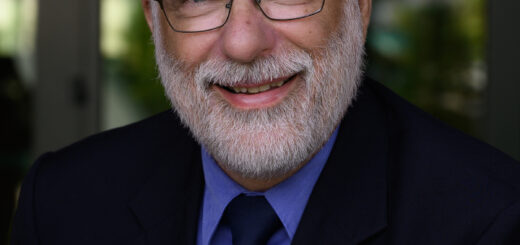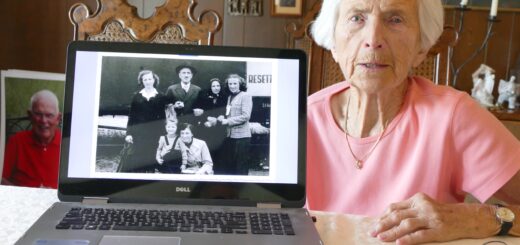If we are to create a more perfect union, we have a lot of work to do …and it begins in our hearts and minds
If there is one virtue we Americans would use some work on, it’s empathy — a willingness to look at situations from other perspectives. And this is something that applies across the political spectrum.
When I interviewed retired oncologist Dr. David Notter recently, he highlighted empathy as his most treasured gift. “I think to get empathy, you have to imagine yourself in someone else’s position that you have never experienced,” Notter said. “It’s not been your experience, and yet you have to put yourself there somehow and feel for that person in that circumstance that you’ve never been in,” he added.
There is so much to learn from that piece of wisdom. Lately, I’ve been spending time reflecting on social justice, in the wake of the death of George Floyd, who died under the knee of a police officer in Minneapolis for nearly nine minutes while fellow officers stood by and failed to intervene. Where was the basic human empathy as the minutes ticked by?
The shocking sight caught by cell phone footage is causing many of us to take a hard look at the way Blacks, people of color, Indigenous Americans, people in the LGBTQ community, etc. are treated in this country. This inquiry is long overdue.
There is abundant evidence on an ongoing basis that people who are “other” in this society are too often subjected to unfair treatment. The notion that there is a level playing field is a myth.
If we want to live up to the promise of the Founding Fathers, perhaps we could follow Notter’s suggestion and start trying to understand what it is like for people who are “otherized” in this society. The treatment of women has come a long ways but we are light years away from equal treatment in this country, as one example.
When it comes to a question of race, despite laws that have been passed and meaningful progress over the years, our society as a whole treats people of color with varying degrees of suspicion, hostility and derision. White is the accepted norm and other bodies are considered less than.
So, the question I am pondering is whether it is good enough for people like me to be “not racist?” I believe we must continue to press for equality in this country and break down barriers that remain. In the case of race, this means learning to become anti-racist.
It is clear to me that we are socialized in this country to devalue others — people of color, those with intellectual disabilities, Indigenous Americans, those in the LGBTQ community, etc. We are nowhere near being in a post-racial society. Despite having had an African American president, the racialization of our country is deeply entrenched.
Our society was set up from the beginning to favor those of us who are white, male and heterosexual. I check all three of those boxes and so I have never in my life experienced outright discrimination or subtle acts of exclusion that are a part of the existence of so many in this culture. The most damaged groups are those who were enslaved, Indigenous Americans and their offspring, who have been impacted by generations of policies and negative social attitudes. The health outcomes and economic stagnation of these groups are a testament to the effectiveness of our society’s malignant attitude toward them.
A growing number of people, including two Our Valley Our Future groups, are actively working to educate themselves about the reality of how our society fails to treat everyone with dignity. I applaud and support these efforts. A sense of belonging and kinship is essential to healing the still-open wounds.
As my friend Thom Nees, the director of Serve Wenatchee Valley, put it, “all of us are seeing only a small fraction of the bigger story and our only way out is to be open to the view through another lens.” Father Richard Rohr explained it this way: “How you see is what you see.”


